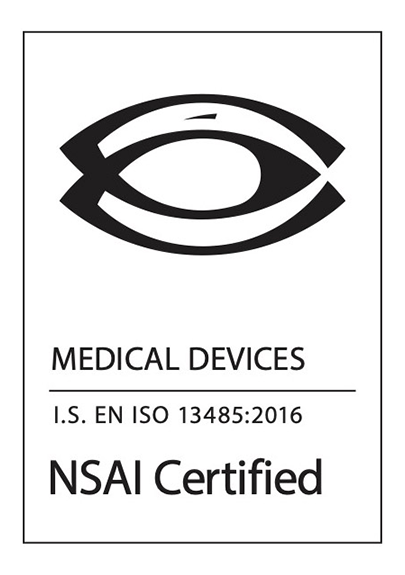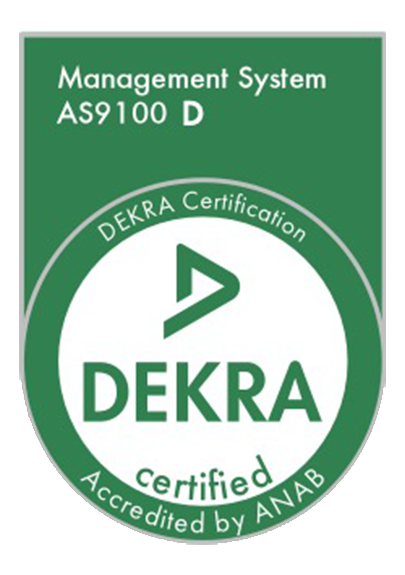Bone screws are integral components in medical devices, especially in the fields of orthopedics and spine surgery. These tiny yet mighty devices play a vital role in stabilizing fractures, fusing bones, and improving the quality of life for countless patients.
Bone screws are threaded fasteners designed to anchor bone fragments or implants to the skeletal structure. They are typically made from biocompatible materials like stainless steel or titanium, ensuring they can safely integrate with the human body. Bone screws are available in various sizes, shapes, and designs, each tailored to specific medical applications. Manufacturing of bone screws requires an in-depth understanding of:
- Design
- Material properties
- Tolerance and geometry requirements
- Surface finish
- Sterilization compatibility
At Pulse Technologies, we have mastered the art of manufacturing bone screws used in orthopedic and spine surgeries. At our state-of-the-art manufacturing facility, our experienced team applies advanced machining techniques at our manufacturing facility to create bone screws with intricate threads and precise dimensions for diverse medical applications.

Enabling ortho and spine precision – the bone screw connection
The bone screw connection is extremely prevalent in orthopedic and spinal surgery, with many types of screws used in these applications based on patients’ needs.
Orthopedic surgery
Bone screws are used to secure fractured bones, align joints, and hold implants in place during procedures like hip replacements, knee reconstructions, and trauma surgeries. These screws provide the stability needed for bones to heal correctly and regain their strength.
Common types of bone screws in orthopedic surgery include:
Cancellous screws
- Cancellous screws are intended for use in the spongy, less dense portion (cancellous bone) found at the ends of long bones and in some flat bones.
- These screws are often used in hip and knee surgery.
- Procedures like hip fixation or surgeries involving the tibia and femur use these screws.
Cortex screws
- Cortex screws, also known as cortical screws, are designed for use in the dense outer layer (cortex) of bones.
- They provide strong fixation and are commonly used in orthopedic surgeries such as those involving long bones like the femur or tibia.
- Fracture fixation and plate fixation surgeries are examples of surgeries where these screws are used.
Cannulated screws
- Cannulated screws have a hollow center (cannula) that allows for the insertion of a guide wire.
- This design facilitates precise placement and is often used in minimally invasive surgeries.
- Fracture fixation and correction of deformities are examples of applications where these screws are used.
Interference screws
- Interference screws are typically used in ligament and tendon reconstruction surgeries.
- Anterior cruciate ligament (ACL) reconstruction is a typical use case for these screws.
Spine surgery
For spinal surgery, bone screws are often used to fuse vertebrae together, correct deformities, or stabilize the spine. Commonly used screws in spinal surgery include:
Pedicle screws
- Pedicle screws are inserted into the pedicles of vertebrae and are part of spinal fixation systems.
- Spinal fusion and correction of spinal deformities are use cases for these screws.
Cervical screws
- Cervical screws are designed for use in the cervical spine (neck region).
- They are smaller and specially shaped to fit the anatomy of the cervical vertebrae.
- Cervical spine fusion is an example of a procedure where these screws are used.
Bone screw capabilities at Pulse Technologies: Where variety meets precision
At Pulse Technologies, our commitment to manufacturing the finest bone screws is exemplified by a comprehensive range of meticulously manufactured solutions. With a quality-first culture and a keen understanding of the unique demands of medical applications, we deliver the perfect bone screw for every need.

We are the partner of choice for numerous medical device companies for bone screw manufacturing due to our:
Design expertise
The design of bone screws is critical to their performance. We understand how to ensure that key factors like thread pitch, length, diameter, and head design are manufactured to perfection. These factors are critical to ensure optimal stability and fixation.
Customization capability
Different medical devices and procedures may require bone screws of varying sizes and specifications. The team at Pulse Technologies can customize bone screws to meet the specific needs of our clients while maintaining consistency and quality. Over the years, Pulse Technologies has produced hundreds of bone screw designs for our medical device customers.
Large capacity
At our 70,000-square-foot facility, we have state-of-the-art equipment and skilled personnel to meet your bone screw manufacturing needs.

Tap into:
- 44 new-age Swiss turning machines to make complex designs at high precision.
- Anodizing capability to improve properties and surface finish and create the desired color match for surgical sizing identification.
- Stringent inspection processes using optical comparators and coordinate measuring machines (CMM) to measure dimensional accuracy, surface finish, and thread form
Tolerance & Precision
Bone screws demand extremely tight tolerances to ensure a secure fit and reliable performance. Maintaining these tight tolerances can sometimes be challenging. At Pulse Technologies, our knowledge of advanced machining techniques allows us to maintain stringent tolerance requirements.
Material knowledge
Expertise working with different materials is necessary to manufacture high-quality and precise bone screws. Materials like titanium, stainless steel, and PEEK as well as other alloys are used depending on the need. Titanium alloys like Ti-6Al-4V are being increasingly used for their superior properties like high strength, corrosion resistance, and biocompatibility. At Pulse Technologies, we are experienced in working with all types of materials. Our team can seamlessly work with your material requirements to bring your designs to market.
Surface finish
Surface coating plays a key role in promoting osseointegration ability and optimizing bone screw stability. Osseointegration is a key factor in improving the stability and durability of the device.
Pulse Technologies is one of the few contract manufacturers with an in-house research and development team. Leveraging our R&D capabilities, we are continuously investing and innovating in this and other areas critical to medical device manufacturing.
Sterilization compatibility
Bone screws manufactured by us are compatible with sterilization processes such as autoclaving and gamma irradiation. The choice of material and finish should consider these sterilization methods.
Pulse Technologies is where precision and innovation converge to drive excellence in bone screw manufacturing. We’re not just contract manufacturers; we’re partners in your mission to improve patient outcomes and transform healthcare. Your success is our success, and we’re here to support you at every step of your journey, from prototyping to production and beyond.

Pulse Technologies at a Glance:
- 30+ years of medical device manufacturing experience
- Industry-leading in-house metrology and testing capabilities
- 70,000-square-foot facility
- 100+ CNC machine tools.
Data conveniently formatted for DHFs/DHRs and more
Want to learn more about our spinal implant manufacturing capabilities? Contact us today.
 Careers
Careers Contact
Contact







